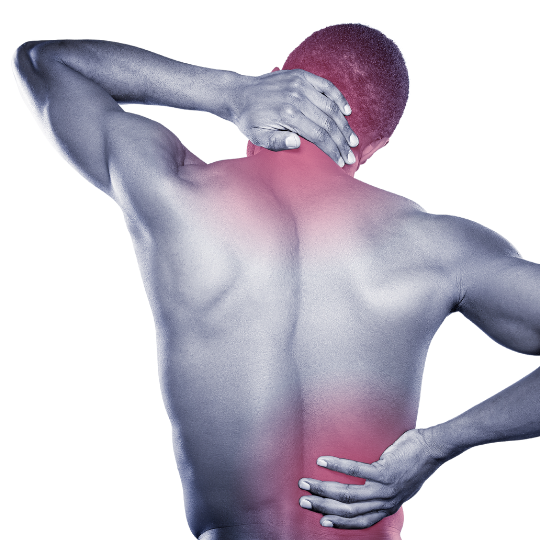Can’t sleep? If you struggle to fall asleep or stay asleep at night, it can take a huge toll on your health and well-being.
Insomnia is the inability to fall asleep or stay asleep at night, resulting in unrefreshing or non-restorative sleep. And it is a very common problem which has great ramifications as people who suffer from insomnia tend to have low energy, an inability to focus, inability to function during the day, grumpiness or even depression. Chronic insomnia can even contribute to serious health problems.
Some people struggle to get to sleep no matter how tired they are. Others wake up in the middle of the night and lie awake for hours, anxiously watching the clock. But, because different people need different amounts of sleep, insomnia is defined by the quality of your sleep and how you feel after sleeping - not the number of hours you sleep or how quickly you doze off. Even if you are spending eight hours a night in bed, if you feel drowsy and fatigued during the day, you may be experiencing insomnia.
Although insomnia is the most common sleep complaint, it is not a single sleep disorder. It is more accurate to think of insomnia as a symptom of another problem. The problem causing the insomnia differs from person to person. It could be something as simple as drinking too much caffeine during the day or a more complex issue like an underlying medical condition or feeling overloaded with stress or responsibilities.
What are the Symptoms of insomnia?
- Difficulty falling asleep despite being tired.
- Frequently waking up throughout the night.
- Trouble getting back to sleep when awakened.
- Unrefreshing sleep.
- Relying on sleeping pills or alcohol to fall asleep.
- Waking up too early in the morning.
- Daytime drowsiness, fatigue, or irritability.
- Difficulty concentrating during the day.
Insomnia is generally split into two types. The first is acute insomnia which is short-term and typically lasts for a few weeks. The second is chronic insomnia which is when sleepless nights occur a few times a week for more than three months.
Causes of insomnia: Figuring out why you can’t sleep
In order to help with sleep, we must first identify which category the individual’s insomnia falls under. The first category is primary insomnia which would indicate that the insomnia is not caused by any health conditions. The other category is secondary insomnia which would identify health problems or substance abuse as the cause of the insomnia.
Here are some causes of primary insomnia:
- Emotional issues such as stress, anxiety, and depression cause half of all insomnia cases
- Sleep routine
- Bad sleeping environment (i.e. loud noises, bright lights or extreme temperatures)
Now that we have the causes of primary insomnia out of the way. Let us take a deep dive into the causes of secondary insomnia. They include:
- Daytime habits – such as Excess consumption of caffeine, tobacco or alcohol
- Emotional issues ~ anger, worry, grief, trauma, etc
- Psychological health issues - Depression, Stress, Anxiety, bipolar disorder, etc
- Medical problems or illness - Asthma, Allergies, Parkinson’s disease, Hyperthyroidism, Acid Reflux, Kidney Disease, and Cancer
- Medications that hinder sleep
- Chronic Pain (especially at night)
- Sleep disorders such as sleep apnea or restless leg syndrome and circadian rhythm disturbances tied to jet lag or late-night shift work.
Here are some questions that may help you identify whether you have primary or secondary insomnia:-
- Are you under a lot of stress?
- Are you depressed? Do you feel emotionally flat or hopeless?
- Do you struggle with chronic feelings of anxiety or worry?
- Have you recently gone through a traumatic experience?
- Are you taking any medications that might be affecting your sleep?
- Do you have any health problems that may be interfering with sleep?
- Is your bedroom quiet and comfortable?
- Do you try to go to bed and get up around the same time every day?
How to get the sleep that you need
Whether you’re looking to resolve a specific sleep problem, or just want to feel more productive, mentally sharp, and emotionally balanced during the day, experiment with the following sleep tips to see which work best for you:
- Have a good sleeping pattern. Keep in sync with your body’s natural sleep-wake cycle
- Sleeping and waking up at the same time every day
- Ensure that sleep time is 7-9 hours
- Do not nap during the day
- Avoid sleeping in - even on weekends
- Fight after-dinner drowsiness
- Control your exposure to light
- Expose yourself to bright sunlight in the morning
- During the day, let as much natural light into your home or workspace as possible
- Spend more time outside during daylight
- At night, avoid bright screens within 1-2 hours of your bedtime
- Say no to late-night television
- Do not use digital devices right before bed. The light may make it harder to sleep
- Have a good sleeping environment
- Dark, quiet and the right temperature
- Use sleeping masks, ear plugs, fans if necessary
- Regular exercise during the day
- Avoid stimulants that cause insomnia like caffeine, tobacco and alcohol
- Avoid drinking too many liquids in the evening as it may result in frequent trips to the bathroom throughout the night
- Cut back on sugary foods and refined carbs
- Do not eat heavy meals before bed
- A light snack before bed may be useful eg: a warm glass of milk before bed
- Develop or practice a relaxing bedtime routine.
- Try to wind down and clear your head
- Read a book, listen to classical music
- Take a warm bath
- Meditate to clear your mind
- Deep breathing exercise
Primary/acute insomnia is relatively easy to treat and often the simplest methods prove to be the most effective. Secondary insomnia is harder to treat than primary insomnia and the doctor may suggest behavioural therapy as a way to cure it. These require a change in lifestyle patterns and adopting habits that promote sleep.
It is extremely important that we practice good sleeping habits as it could affect our ability to perform during the day. Insomnia can be extremely frustrating so we must definitely take the necessary steps to ensure that we do not suffer from it. Sleep is something that most people nowadays pay little to no attention to so we must spread the word of its importance and overall effect on the human body.
Learn more how Hi-Bliss Hydrogen Therapy can help with Insomnia here: https://hi-bliss.com/our-wellness-programs/



